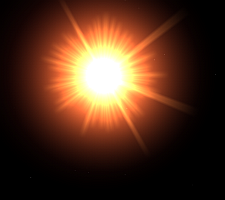A masters degree candidate at Delft University of Technology in the Netherlands developed a new type of hybrid solar collector with higher efficiency and longer lifespan than the current hybrid systems. Stefan Roest, who recently completed his degree in sustainable energy technology at Delft, also helped start Eternal Sun, a company to bring solar test and measurement technology to market.
A hybrid solar collector combines photovoltaic (PV) solar cells that convert sunlight into electricity with a solar heater that provides warm water. In most hybrid collectors, residual heat from the PV solar panel heats the water that flows through a system of pipes on a copper sheet. The solar collector has a transparent cover that helps to retain the heat, which is needed to heat the water in the pipes.
When the material in the PV solar cell reaches 120 degrees C (248 F), however, it degrades quickly, which reduces the solar cell’s efficiency by about 20 percent and limits its lifespan to five to ten years. For his masters degree project, Roest developed a new type of hybrid solar collector with increased electrical efficiency and a longer lifespan.
Roest’s solar collector has no transparent cover. The water flows through a large number of small aluminum channels directly under the solar panel instead of through copper tubing and a copper sheet. Thus, the device needs less heat to sufficiently warm the water for household use.
The device also uses a thin film solar panel instead one made of crystalline silicon; thin film panels make it easier to extract heat. Getting rid of the cover means that the heat of the thin film solar panel could be limited to about 80 degrees. At this temperature, Roest’s hybrid solar collector has an efficiency loss of about 10 percent, compared to the 20 percent for crystalline silicon solar panels, and has an estimated lifespan of 15 to 20 years.
To develop the prototype solar collector, Roest built a device called a solar simulator that puts out artificial sunlight. Commercial interest in the solar simulator quickly developed, and the university patented the technology. Those events led he and a fellow student to start Eternal Sun, a Delft a spin-off company, to develop and market solar simulators.
The solar simulator generates artificial sunlight at specified intensities for testing solar products in indoor (e.g., factory) environments. In June, Eternal Sun won a European business plan competition conducted by the consulting firm Bearing Point, with a prize of €30,000 ($US47,500).
Read More: Laser Technology Can Cut Solar Cell Costs, Raise Efficiency
* * *


 RSS - Posts
RSS - Posts
It’s amazing how much innovation is occurring with Solar Photovoltaic technology at the moment!